Forming the Past Perfect Tense
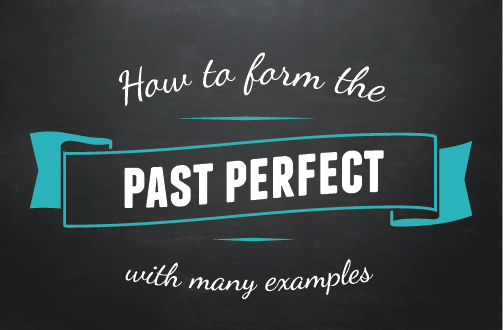
Let's learn how to form the past perfect tense.
This tense is formed using the auxiliary verb "had" plus the past participle of the main verb. We'll learn how to make positive and negative forms, short forms (contractions) and questions.
[Note: Click here to learn how to use the past perfect.]
Past Perfect Affirmative Statements
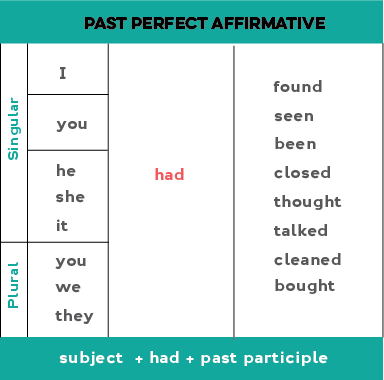
To form the past perfect: we use subject + "had" + the past participle.
Note: You can also use contractions: I had = I'd; you had = you'd; he had = he'd; she had = she'd; we had = we'd; they had = they'd
To form the past participle: add "ed" to the infinitive form of regular verbs. We use the same form for each subject (e.g., I, you, he).
- I had started the computer but it took so long to boot up I used my iPad. (start — started)
- I'd started the computer.
- She had lived here many years before moving here again. (live — lived)
- She'd lived here for 20 years.
- They hadn't complained about this before. (complain — complained)
- They had complained about this two times before.
Spelling Changes with Past Participles
Sometimes there are spelling changes when forming the past participle:
1. If the verb ends with "y", we change it to -i and add -ed (but only if there's a consonant before the -y):
- Had you tried sushi before today? It's great, isn't it? (try — tried)
- We hadn't studied the vocabulary before we took the exam. (study — studied)
- I'd cried on Valentine's Day five years in a row but not this year. (cry — cried)
- My assistant hadn't copied the report before the meeting. (copy — copied)
2. If the verb ends with "e" , we add just a "d" (not "ed"):
- Hadn't the store already closed by the time you arrived? (close — closed, NOT: closeed)
- She had figured there would be six people for dinner but seven arrived. (figure — figured)
3. Double the final consonant after a short stressed vowel if the verb ends in a CVC (consonant vowel consonant)*:
- I had stopped eating meat but started again (stop — stopped: double the "p" then add "ed")
- She had planned to surprise her daughter for her birthday but she didn't want a birthday party after all. (plan — planned)
(*except CVC endings with w, x, or y)
Irregular Past Participle Forms
Many verbs have irregular past participles.
Examples:
- We had eaten spaghetti three days in a row. (NOT: we have "eated")
- I had done the wash before my wife came home. (NOT: "doded")
- I thought my dog had run away but he was sleeping in my bed. (NOT: "runned")
Unfortunately, you have to memorize them. Here are many of the irregular forms:
|
be — been become — become begin — begun break — broken bring — brought buy — bought catch — caught choose — chosen come — come cost — cost cut — cut do — done draw — drawn drink — drunk drive — driven eat — eaten fall — fallen feel — felt fight — fought |
find — found fly — flown forget — forgotten get — gotten give — given go — gone grow — grown hang — hung have — had hear — heard hide — hidden hit — hit hold — held hurt — hurt keep — kept know — known leave — left lend — lent let — let |
light — lit lose — lost make — made mean — meant meet — met pay — paid put — put read — read ride — ridden ring — rung rise — risen run — run say — said see — seen sell — sold send — sent shine — shone shoot — shot shut — shut |
sing — sung sit — sat sleep — slept speak — spoken spend — spent stand — stood steal — stolen swim — swum take — taken teach — taught tear — torn tell — told think — thought throw — thrown wake — woken wear — worn win — won write — written |
Past Perfect Negative Statements
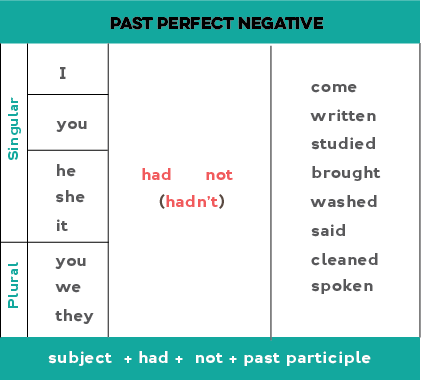
To form the negative, simply add "not" after "had":
- subject + had + not + past participle
We can also use the contractions hadn't (had not = hadn't)
Examples:
- I had not written to my mother in years.
- The housekeeping staff hadn't cleaned the room in two days.
- We hadn't washed the car because we thought it would rain.
- Before last night I hadn't spoken to my ex-girlfriend in three months.
- My parents had not come to one of my games before today.
Yes / No Questions
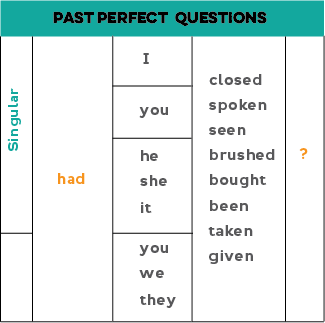
To form questions use:
- had + subject + past participle
Examples:
- Had you spoken to him before you met each other?
- Had she seen a psychiatrist before?
- Had they bought anything from that store before today?
- Had the weather been nice in previous years?
- Had it taken so long to get a reservation in the past?
- Had they given you the same excuse the last time?
We can answer no questions with a full or a shorter answer by using contractions (hadn't) with negative answers.
Examples:
Had you visited Sri Lanka before this trip?
- Yes, I had visited the country twice before this trip.
- Yes, I had. (short answer)
- No, I had not visited the country twice before this trip.
- No, I hadn't. (short answer)
Had the snowstorm started before you left?
- Yes, it had started before we left.
- Yes, it had. (short answer)
- No, it had not started.
- No, it hadn't. (short answer)
Wh- Questions Past Perfect
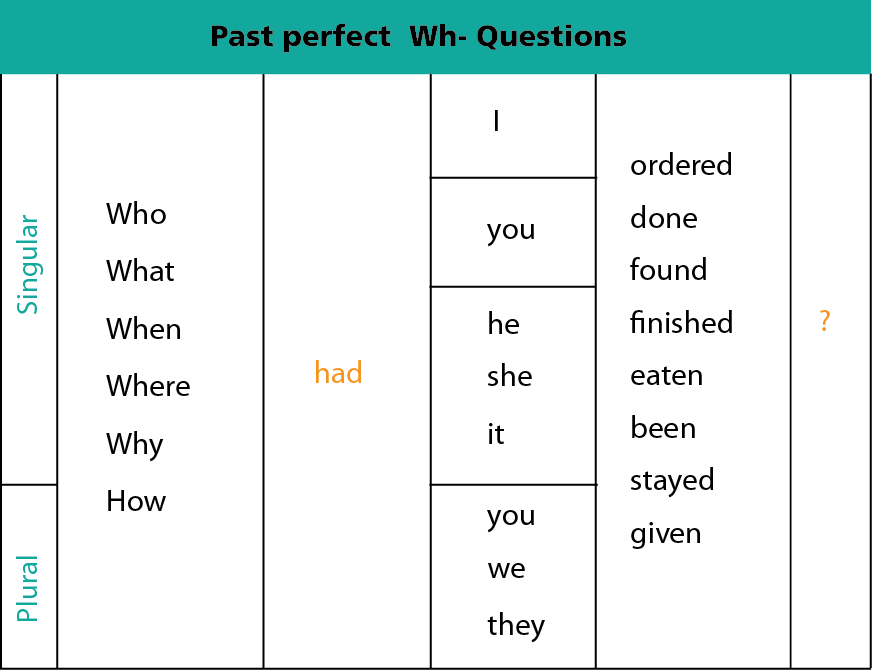
Notice the word order. The wh- question word comes before "had" and then the past participle.
Examples:
- How long had you studied French before you moved here?
- Where had the dog gone?
- Why had the bus stopped in the previous city?
- Who had they originally found to cater the event?
- What had your sister thought about the first interview?
- How much of the cake had your dog eaten before you caught him?
Whew! We covered a lot of information on this page. Check back for exercises that will help you practice the past perfect in its different forms.
Click here to learn when to USE the past perfect.
- Home Page ›
- Main Grammar Page ›
- Use: Past Perfect >
- Form: Past Perfect
